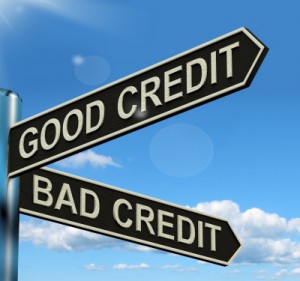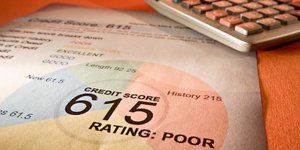Dear Liz: What score do you need to be approved for a mortgage? Is 520 even close? If not, how do I get that score higher quickly?
Answer: A score of 520 on the usual 300-to-850 FICO scale is pretty bad. Theoretically, you might be able to get a mortgage if you can make a large down payment, but you’ll have more options — and pay a lot less in interest — if you can get your scores higher.
That, however, takes time. You need a consistent pattern of responsible credit behavior to start offsetting your mistakes of the past. If you don’t already have and use credit cards, consider applying for a secured credit card, which requires a cash security deposit, typically of $200 or more. You’ll get a credit limit equal to your deposit. Using the card lightly but regularly, and paying in full every month, can help your scores.
A credit builder loan, offered by credit unions and the online company Self Lender, is another way to improve your credit while building your savings at the same time. The money you borrow is put into a savings account or certificate of deposit that you can claim once you’ve made 12 monthly payments. Making your payments on time helps improve your credit history and scores.
Taking a year to build your credit also would give you more time to save for your down payment and for closing costs. Rushing into homeownership is rarely a good idea, so take the time you need to get your financial life in order first.
 Today’s top story: Whittle down your debt while having bad credit. Also in the news: 6 secrets from flight crews to stave off jet lag, what to buy every month of the year in 2018, and 3 ways you can better save for retirement.
Today’s top story: Whittle down your debt while having bad credit. Also in the news: 6 secrets from flight crews to stave off jet lag, what to buy every month of the year in 2018, and 3 ways you can better save for retirement.  Today’s top story: How that new store card could torpedo your credit score. Also in the news: Insuring expensive gifts, the right mortgage to ask, and how to quickly figure out how much spending money you’ll have for the year.
Today’s top story: How that new store card could torpedo your credit score. Also in the news: Insuring expensive gifts, the right mortgage to ask, and how to quickly figure out how much spending money you’ll have for the year. Today’s top story: What doesn’t affect your credit score. Also in the news: A crash course for first-time Black Friday shoppers, how far your money will stretch on Black Friday, and how to pick a college that won’t break the bank.
Today’s top story: What doesn’t affect your credit score. Also in the news: A crash course for first-time Black Friday shoppers, how far your money will stretch on Black Friday, and how to pick a college that won’t break the bank. Today’s top story: How to boostrap your credit for free or cheap. Also in the news: 3 ways to get your business up and selling on Amazon, three things to do for the best online banking, and how to save at the start of your career.
Today’s top story: How to boostrap your credit for free or cheap. Also in the news: 3 ways to get your business up and selling on Amazon, three things to do for the best online banking, and how to save at the start of your career. Today’s top story: Lock down your data right now after Equifax breach.Also in the news: Health insurers ease rules for Harvey Victims, protecting critical documents from disaster with a bug-out bag, and the credit move than can bump your score in 30 days.
Today’s top story: Lock down your data right now after Equifax breach.Also in the news: Health insurers ease rules for Harvey Victims, protecting critical documents from disaster with a bug-out bag, and the credit move than can bump your score in 30 days. Today’s top story: How to lower your monthly mortgage payment. Also in the news: 5 things to do before changing careers, a Labor Day look at America’s workforce, and 3 myths that could tank your credit score.
Today’s top story: How to lower your monthly mortgage payment. Also in the news: 5 things to do before changing careers, a Labor Day look at America’s workforce, and 3 myths that could tank your credit score.